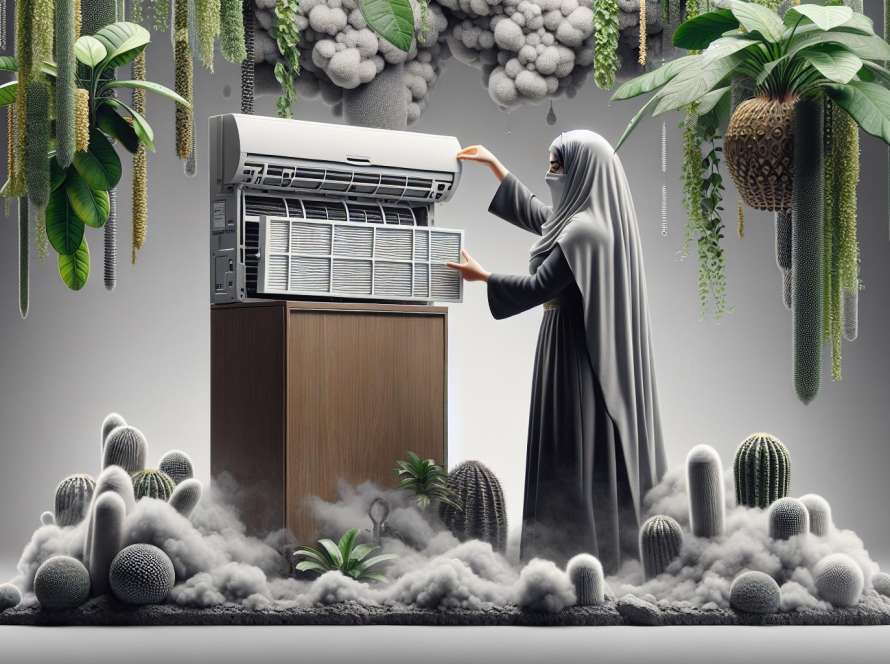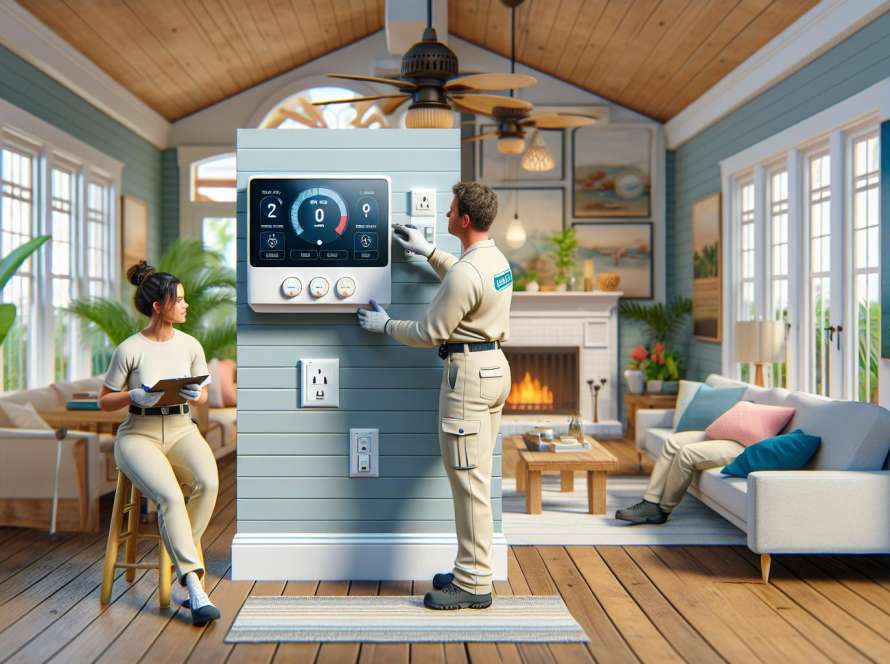Living in a humid climate can really put our air conditioners to the test. The excess moisture in the air can take a toll on our AC units, leading to premature wear and tear. But fear not, there are steps we can take to maximize the lifespan of our cooling systems in these challenging conditions. By following some simple maintenance tips and being proactive, we can ensure that our AC units keep us cool and comfortable for years to come.
Importance of Maintaining Your AC in Humid Climates
In humid climates, maintaining your AC unit is crucial to maximizing its lifespan and ensuring optimal performance. Here’s a breakdown of the importance of maintenance at different levels:
For Beginners: Basic Maintenance Tips
- Regularly clean or replace air filters to prevent dust and debris buildup.
- Ensure proper airflow by keeping the area around the unit clear.
- Schedule annual professional inspections to identify and address any issues early on.
For Intermediate Users: Enhancing Performance
- Clean the evaporator and condenser coils to improve efficiency.
- Check and seal ducts to prevent air leaks and improve airflow.
- Invest in a programmable thermostat for energy savings and precise temperature control.
- Perform regular refrigerant level checks and recharge if needed.
- Inspect and lubricate moving parts to reduce wear and tear.
- Consider upgrading to a more energy-efficient unit for long-term savings.
By following a comprehensive maintenance routine, you can ensure that your AC unit operates efficiently and has an extended lifespan in humid climates. Take proactive steps to care for your AC, and you’ll enjoy cool comfort for years to come.
Understanding the Impact of Humidity on Your AC Unit

In humid climates, humidity levels above 60% can significantly affect the performance and lifespan of your AC unit. Here’s a breakdown of how humidity impacts your air conditioner at different user experience levels:
For Beginners: Maintaining Efficiency
- Clean or replace air filters regularly to prevent mold and mildew growth.
- Keep the area around the outdoor unit clear to ensure proper airflow.
- Schedule annual professional maintenance to detect and address issues early.
For Intermediate Users: Enhancing Performance
- Check and clean evaporator and condenser coils for efficient heat transfer.
- Monitor refrigerant levels and recharge if needed to prevent system strain.
- Use a dehumidifier to reduce indoor humidity levels and lessen the load on your AC.
- Upgrade to an energy-efficient unit to save on energy costs.
- Invest in a programmable thermostat for precise temperature control.
- Consider adding a whole-house dehumidifier for comprehensive humidity management.
By understanding the impact of humidity on your AC unit and following these tailored maintenance tips, we can ensure optimal performance and a longer lifespan for our air conditioning systems in humid climates.
Tips for Properly Ventilating Your AC System
When it comes to maintaining your AC system in humid climates, proper ventilation is crucial for efficient operation and maximizing its lifespan. Here are some tips tailored for different user levels:
For Beginners: Mastering the Basics
- Regularly check and clean air filters to ensure proper airflow.
- Keep furniture and objects away from vents to allow unrestricted air circulation.
- Open windows and doors when weather permits to promote fresh air exchange.
- Use ceiling fans to help distribute cool air throughout the room effectively.
For Intermediate Users: Enhancing Your Ventilation
- Inspect and clean evaporator and condenser coils to maintain optimal heat transfer.
- Monitor refrigerant levels and schedule professional maintenance when needed.
- Consider installing a dehumidifier to reduce moisture levels and ease the workload on your AC system.
- Upgrade to an energy-efficient unit for improved performance and lower energy costs.
- Invest in a programmable thermostat to regulate temperature settings based on your schedule.
- Implement zoning systems to control different areas independently and optimize energy usage.
- Install UV germicidal lights to improve indoor air quality by neutralizing bacteria and mold.
- Consider duct sealing and insulation to prevent air leaks and enhance overall system efficiency.
By following these ventilation tips based on your expertise level, you can ensure that your AC system operates efficiently in humid conditions, extending its lifespan and improving overall performance.
Regular Cleaning and Maintenance Practices
For Beginners: Basic Steps to Keep Your AC System Running Smoothly
- Clean the air filters regularly to ensure proper airflow and efficiency.
- Maintain clear pathways around vents and registers for optimal air circulation.
- Use ceiling fans to help distribute cool air evenly throughout the room.
For Intermediate Users: Taking Your Maintenance Routine Up a Notch
- Clean the coils periodically to prevent dust and dirt buildup, which can affect performance.
- Monitor refrigerant levels and schedule professional inspections to identify and fix any leaks.
- Consider investing in a dehumidifier to manage excess moisture and enhance comfort.
- Upgrade to an energy-efficient AC unit to reduce energy consumption and running costs.
- Install a programmable thermostat for better temperature control and energy savings.
- Implement zoning systems to tailor cooling settings to specific areas and increase efficiency.
- Enhance indoor air quality with UV germicidal lights to reduce allergens and improve overall comfort.
Investing in Dehumidifiers for Added Protection

In humid climates, dehumidifiers can be a valuable asset in maximizing the lifespan of your AC system. Whether you’re a novice or a seasoned AC user, incorporating a dehumidifier into your home can provide several benefits.
For Beginners: Understanding the Basics
- Dehumidifiers help reduce excess moisture in the air, easing the workload on your AC.
- Portable dehumidifiers are user-friendly and ideal for targeting specific areas in your home.
For Intermediate Users: Optimizing Your Strategy
- Consider whole-house dehumidifiers for comprehensive humidity control.
- Maintain ideal humidity levels between 30% to 50% to promote AC efficiency and comfort.
- Integrate your dehumidifier with your AC system for seamless operation.
- Regularly clean and service your dehumidifier to ensure optimal performance.
Investing in a dehumidifier is a proactive step towards preserving your AC system in a humid climate. By controlling indoor humidity levels, you can reduce strain on your AC unit, promote energy efficiency, and enhance overall comfort in your home.
Conclusion
Investing in dehumidifiers is key to maximizing AC lifespan in humid climates. Portable dehumidifiers can assist beginners by reducing excess moisture and lightening the AC workload. For intermediate users, whole-house dehumidifiers maintain humidity levels at 30% to 50%. Integrating dehumidifiers with AC systems and regular maintenance are crucial for optimal performance and efficiency. By implementing these strategies, we can reduce strain on AC units and enhance overall home comfort.

